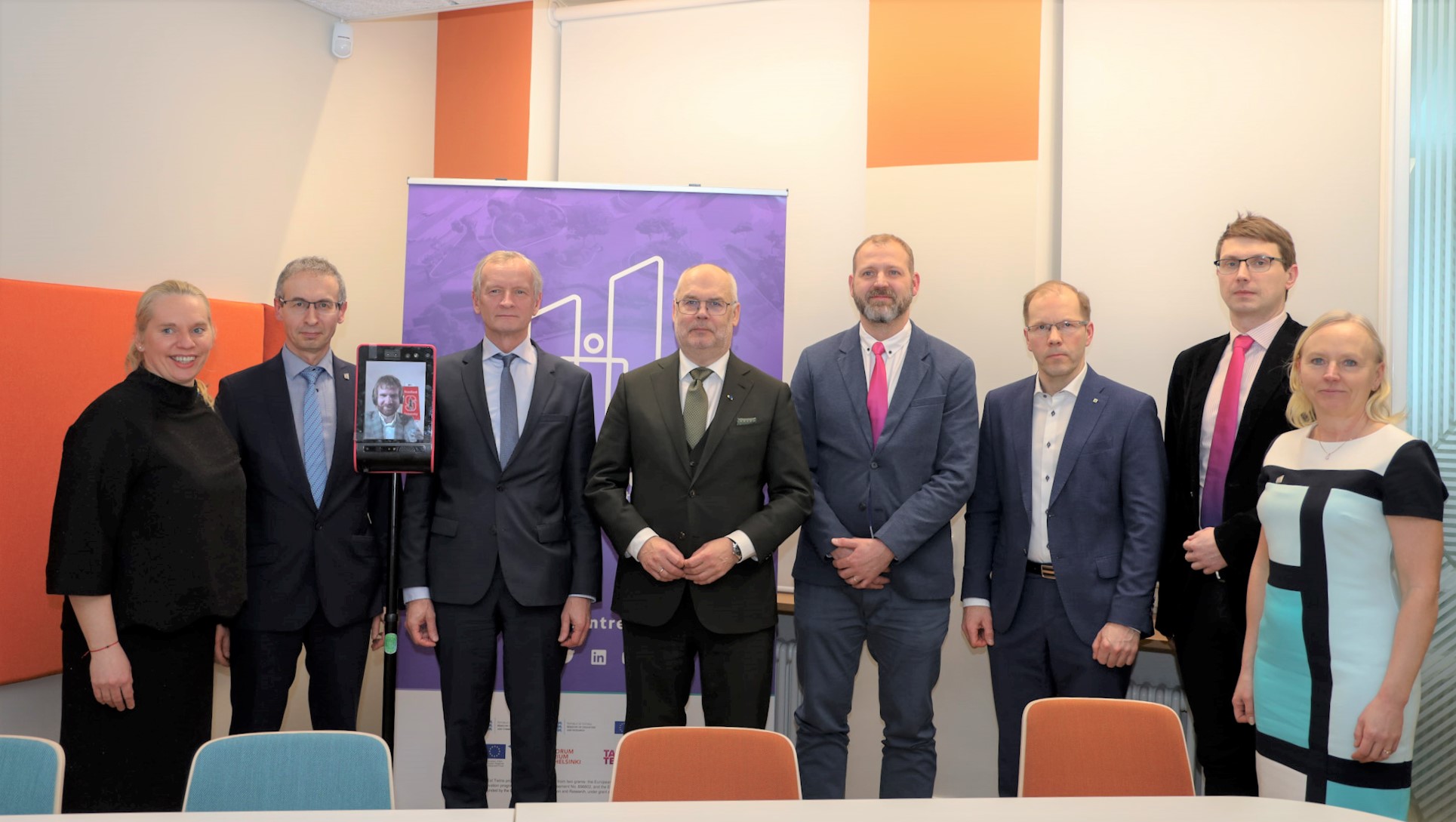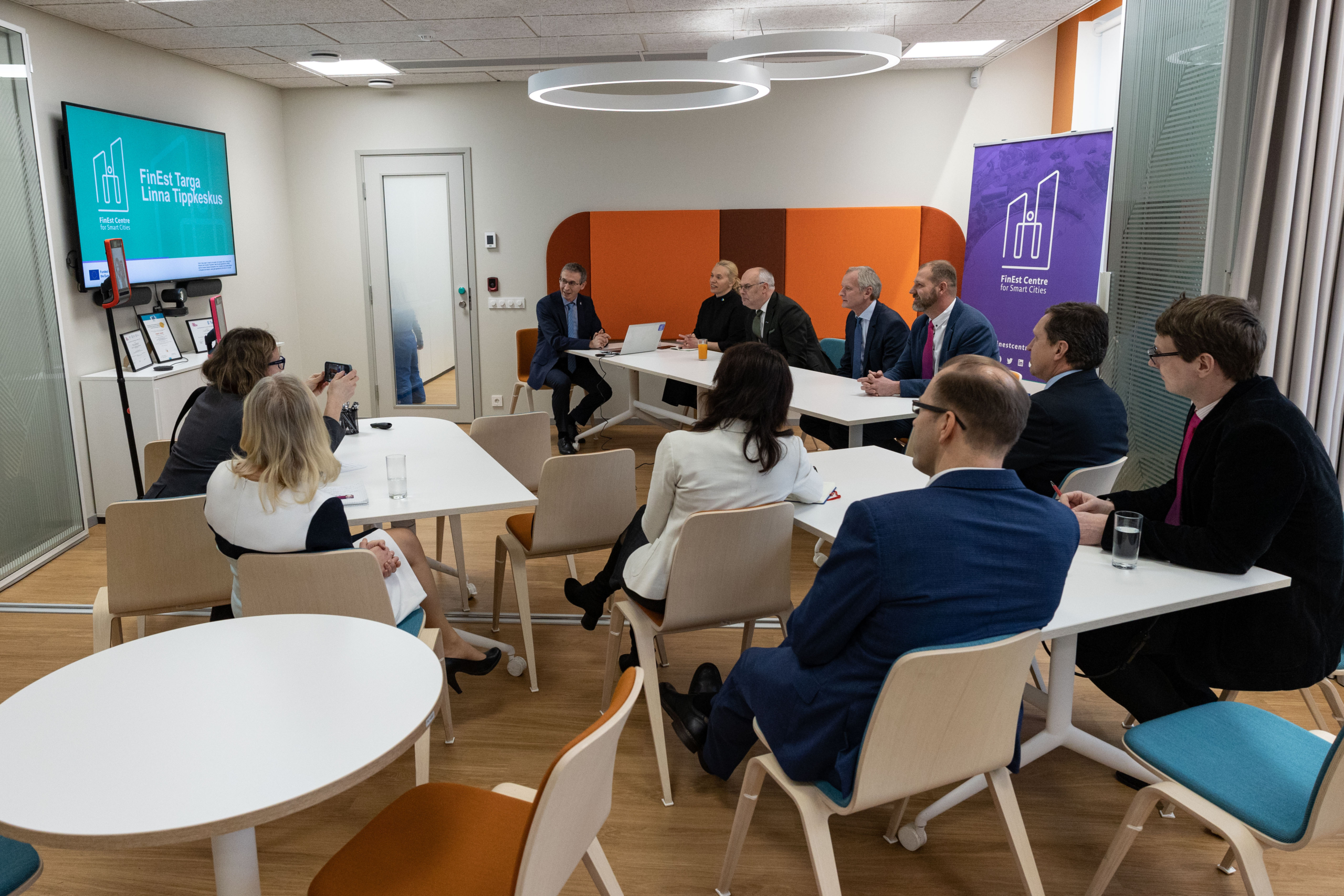According to the head of state, the use of such urban planning tools in small towns will help to avoid mistakes in planning and development on a larger scale in the future.
“Looking to the future, we need to urgently restore and rebuild Ukrainian cities that have been destroyed in Russia’s war of aggression. Here, too, the solutions of Estonian and Finnish scientists are useful,” said President Karis.
“I am very happy and proud that FinEst Centre, which is an independent organization within TalTech, has gained wider attention with its ambitious goals and special achievements,” said TalTech’s rector Tiit Land. “Here, we boldly look into the future, keeping in mind the most important customer of science – the human being.”
We gave an overview of our researchers being involved in several cooperation projects of the UN and the most prominent cities in Europe, such as NetZeroCities, where a hundred European cities are being helped to become smartly climate-neutral, and the UNDP Urban Learning Center, where a centre is being established for 300 cities in Ukraine, Armenia, Azerbaijan, Georgia and Moldova. Researchers also participates in the fields of cyber security, circular economy and air quality project.
“Bringing the knowledge generated from the European projects to Estonia could also be a focus of the country’s regional policy in the future, so that the best practices are adopted for the benefit of our cities and people,” suggested Einari Kisel, head of strategy and partnership relations at FinEst Centre.






